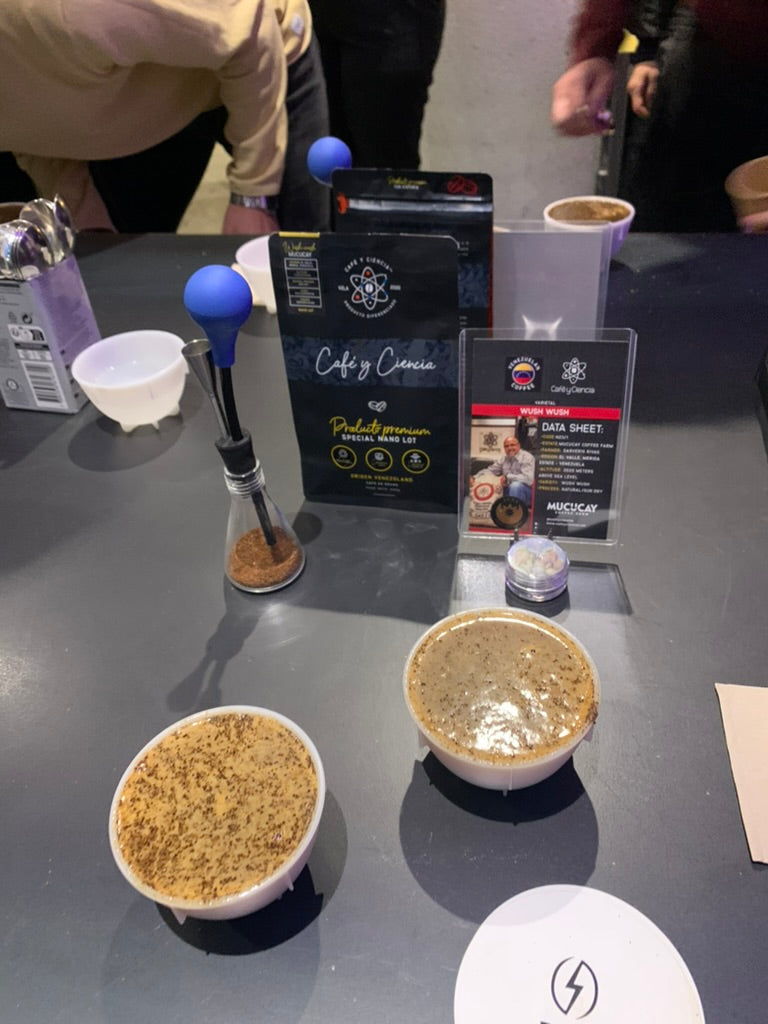What is specialty coffee?
Specialty coffee refers to a higher quality, more carefully produced type of coffee. It's like the gourmet version of coffee. Here's a simple explanation:
Imagine you have regular coffee and specialty coffee growing side by side on two different farms. Regular coffee might be mass produced with little attention to detail, using lower quality beans and sometimes even blending different varieties together. It's like the fast food of coffee.
On the other hand, specialty coffee is like a handmade masterpiece. It comes from carefully selected beans, often from specific regions or farms known for producing exceptional coffee. These beans are grown with greater care, under optimal conditions and often from a single variety.
Specialty coffee producers pay attention to every step of the process, from planting and caring for the coffee plants to harvesting the ripest cherries and meticulously processing them. They ensure that the beans are roasted to perfection, highlighting their unique flavors and characteristics.
When you brew specialty coffee, you can taste the difference. It offers a more distinctive and delightful taste experience. You might discover intriguing notes of fruit, chocolate, floral notes, or other distinctive flavors that make every cup a special and memorable experience.
So, in simple terms, specialty coffee is like the best version of coffee you can find. It is made with great care and attention to detail, resulting in a delicious and exceptional cup of coffee.
Specialty Coffee according to the Specialty Coffee Association SCA
Specialty coffee is a term used to describe high-quality coffee beans that have been grown and processed in an exceptional manner. According to the Specialty Coffee Association (SCA), a globally recognized organization in the coffee industry, specialty coffee is defined by its distinctive flavor and unique attributes, as well as the care and attention that has been put into every stage of its production.
The SCA has established protocols and standards for evaluating and grading specialty coffee. These protocols are based on a sensory evaluation called "cupping" that involves expert tasting of coffee. Here are the key aspects of the grading protocols:
- Origin and quality of beans: Specialty coffee beans must be of single origin and traceable. This means that the exact region, farm or plantation where the beans were grown must be known. In addition, the beans must meet certain quality standards, such as not having serious defects, having a uniform appearance and being in optimal ripeness conditions.
- Scoring and Grading: Professional cuppers conduct a sensory evaluation of coffee using a technique called “cupping.” They are provided with a sample of coffee that has been freshly roasted and ground to a specific fineness. The cuppers then evaluate various aspects of the coffee, such as its fragrance, aroma, flavor, acidity, body, and finish. Each of these attributes is scored on a scale of 0 to 100, with specialty coffees needing to achieve a minimum score of 80 points to be considered as such.
- Flavor Profile: In addition to the overall score, specialty coffee is expected to exhibit a distinctive and pleasing flavor profile. This means that the coffee has complex and well-balanced flavors, with unique characteristics that reflect its origin and production process. For example, a specialty coffee may have notes of tropical fruits, caramel, chocolate, or spices, among other flavors.
- Transparency and sustainability: SCA also promotes transparency in the coffee supply chain, from producer to final consumer. This involves fair trade and proper payment to farmers and workers involved in coffee production. In addition, environmental and social sustainability is valued at all stages of production.
In summary, according to the SCA, specialty coffee is characterized by its exceptional quality, distinctive flavor profile, and meticulous attention to its production. Protocols for classifying it as specialty coffee include sensory evaluation through cupping, minimum scores of 80 points, a unique flavor profile, and the promotion of transparency and sustainability in the supply chain.
Because specialty coffee is more sustainable
Specialty coffee often goes hand in hand with sustainability for several reasons:
- Focus on quality and traceability: Specialty coffee places a strong emphasis on the quality and traceability of beans. This means that farmers and producers are more likely to adopt sustainable farming practices to grow high-quality coffee. Sustainable practices can include organic farming methods, biodiversity preservation, and water conservation, among others.
- Direct trade and fair prices: Specialty coffee often involves direct trading relationships between coffee producers and roasters. This allows for fairer and more transparent pricing, ensuring that farmers are better compensated for their efforts. Fair prices allow farmers to invest in sustainable practices, improve their livelihoods, and care for their communities.
- Environmental stewardship: Specialty coffee producers are often more conscious of their environmental impact. Many of them implement eco-friendly practices, such as shade-growing that preserves natural habitats, using renewable energy sources for processing, and minimizing water use. These practices help protect the environment, conserve resources, and reduce the carbon footprint associated with coffee production.
- Long-term partnerships: Specialty coffee fosters long-term relationships between producers and buyers. This stability allows farmers to plan for the future, invest in their farms, and implement sustainable practices that may take time to pay off. It also encourages knowledge sharing and collaboration to continually improve the quality and sustainability of the coffee produced.
- Community development: Specialty coffee often promotes social and economic development within coffee-growing communities. By paying fair prices and investing in education, healthcare, and infrastructure, specialty coffee supports the well-being of people involved in the coffee supply chain. This contributes to the long-term sustainability of both the coffee industry and the communities that rely on it.
In short, specialty coffee’s focus on quality, traceability, fair pricing, environmental stewardship, long-term partnerships, and community development makes it more likely to be produced sustainably and socially responsible. Choosing specialty coffee can help support a more sustainable and ethical coffee industry as a whole.




